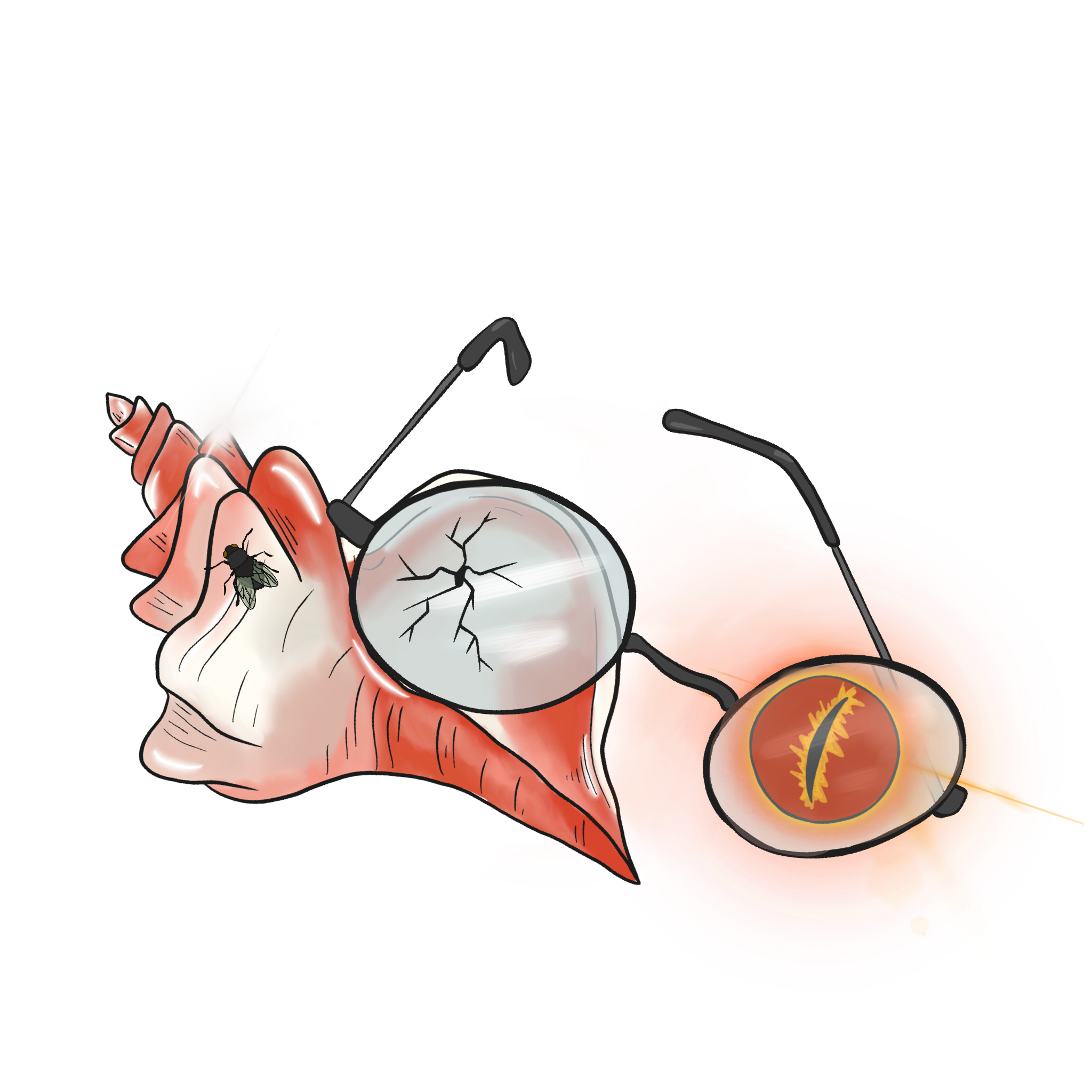
This lesson begins with a discussion of how authors tell great stories. Students will hear two stories about dogs, one told from the first person and the other from the third person point of view. Students will use a Card Sort activity to discover how to tell the difference in point of view and will... Read more »
Point of View
Grade Level
Subject
Standards

Human-Environment Interaction
Grade Level
In this lesson, students learn about the story of the near extermination and subsequent re-introduction of the Gray Wolf of Yellowstone National Park. Through this narrative, students learn about apex predators, keystone species, and ecosystems. They learn to form cause and effect statements, analyze... Read more »
Human-Environment Interaction
Subject
Course
Grade Level
Standards

Responsibilities and Rights of U.S. Citizens
Grade Level
In this lesson, students explore the responsibilities of citizens. Students begin by brainstorming what it means to be a good citizen. They then analyze two documents that provide further information on the responsibilities of citizens within a democracy and summarize their learning in a graphic organizer.... Read more »
Responsibilities and Rights of U.S. Citizens
Grade Level
Subject
Course
Standards

Students will look at the increase in seismic activity in Oklahoma and around the United States in recent years. Some say the earthquakes are a direct result of an oil and gas process called hydraulic fracturing, while others disagree. Students will investigate this question for themselves and formulate... Read more »
Earthquakes in Oklahoma
Related
Grade Level
Subject
Course
Standards

In this lesson, students analyze the physiological and psychological factors that promote mental health in teens. They brainstorm potential sources of stress and identify strategies to manage stress. Read more »
Mental Health of Teens
Related
Grade Level
Subject
Course
Standards

In this lesson, students will examine the facts associated with evolution, make inferences about an organism based on fossilized remains, explore how evolution is influenced by the environment, and construct a timeline of an organism's evolution as a result of environmental factors or human impact over... Read more »
The Foundations of Evolution
Subject
Course
Grade Level
Standards

This lesson focuses on solving literal equations by building on the equation-solving knowledge students developed in Parts 1 and 2 of the Journey of the Isolated Variable series. Students will deepen their understanding of rearranging multi-variable equations to isolate a specific variable. By the end... Read more »
Literal Equations
Course
Subject
Grade Level
Standards

In this lesson, students will work in groups to annotate and summarize texts about plagiarism and its effect on learning. They will reflect on what they know about plagiarizing and how to avoid it in their writing. By teaching one another through group and class discussions, students will better understand... Read more »
Avoiding Plagiarism
Subject
Course
Grade Level
Standards

In this sixth lesson of the "Lord of the Flies" unit, students will analyze the text for symbols of power. Students will categorize evidence from the novel to support the claim that either the seashell or the glasses were the ultimate symbol of power. Read more »
I've Got the Power
Subject
Course
Grade Level
Standards

In this lesson, students explore the theme of tradition by reading Shirley Jackson’s short story, "The Lottery," and an accompanying article, "The Dangers of Tradition." As students develop their own beliefs concerning the value and possible dangers of tradition, they share their opinions with their... Read more »
The Lottery
Subject
Course
Grade Level
Standards

In this lesson, students will invent a new sport. Students will begin by playing a short round of ultimate Frisbee® or other sport and discussing what makes it a sport. Students will then read about the four components that make a sports game. Finally, students will use gym equipment to invent a new... Read more »
Inventing a Sport
Grade Level
Subject
Course
Standards

Identifying the Difference Between Nonfiction and Fiction Texts
Grade Level
In this lesson, students will learn to identify the difference between fiction and nonfiction texts and to determine the importance of knowing the difference between the two types. The students use book sorts, videos, and fun activities to come to their own understanding of fiction and nonfiction texts. Read more »
Identifying the Difference Between Nonfiction and Fiction Texts
Grade Level
Subject
Course
Sponsor
Standards

Werewolves Who Write
“And they called it puppy love…” This lesson will have students falling in love with werewolves from all packs as they explore how mythology and lore has progressed over time, place, and culture. After they discover which pack they belong to, they will work together to design a movie poster that depicts... Read more »
Werewolves Who Write
Subject
Standards

Many teenagers and young adults are concerned about life in the “real world” and the adult skills needed to navigate this landscape. In this lesson, students will explore “adulting.” Students will research necessary life skills and create a presentation to be delivered to their classmates. In the process,... Read more »
Researching Life Skills
Grade Level
Subject
Standards

Special Grammar Ingredients: Brackets, Parentheses, and Ellipses
Grade Level
In this grammar and punctuation lesson, students will explore the proper usage of brackets [ ], parentheses ( ), and ellipses … in writing. From ELA to math, science, and social studies, students will explore how brackets, parentheses, and ellipses are used across the curriculum. This exploration will... Read more »
Special Grammar Ingredients: Brackets, Parentheses, and Ellipses
Grade Level
Subject
Course
Standards

Is it really worth it? In this lesson, students will read “The Bet” by Anton Chekhov and view “The Silence,” an episode from the Twilight Zone, analyzing the motives and outcomes of the characters. Students begin by participating in a word cloud listing things they’d be willing to give up. Next, they... Read more »
Argumentative Writing
Grade Level
Subject
Standards

Expressing Possibilities: Using the Present Subjunctive in Spanish to Discuss Uncertain or Potential Situations
Grade Level
Why does the unknown trigger the subjunctive in Spanish? And what is the subjunctive, anyway? This lesson introduces the present subjunctive inductively through authentic Spanish songs as contextual materials. Students examine lyrics from the songs "Quiero un amor" and "Necesito una compañera" to identify... Read more »
Expressing Possibilities: Using the Present Subjunctive in Spanish to Discuss Uncertain or Potential Situations
Grade Level
Related
Course
Subject
Standards

In this interactive session, participants will explore a career roadmap and experience a mini-virtual career expo. Participants will leave with a variety of ideas about implementing virtual career experiences in their own GEAR UP programs. Read more »
Target Audience
Calendar Placement
Group Size
Related
Intention Or Purpose

During this activity, teachers will have an opportunity to explore activities, lessons, and materials the K20 Center has developed. Using these materials, they will find ways to implement the ICAP initiative in their classrooms. They will research new career fields and create their own vision boards... Read more »
Target Audience
Calendar Placement
Group Size
Related
Intention Or Purpose

Discussions are a natural, common practice in ELA classrooms. It is a daily challenge to engage students face-to-face, but engaging students online can feel especially difficult. This presentation introduces strategies that can effectively spark ideas for both face-to-face and virtual discussions: First... Read more »

While it is important for students to engage in classroom discourse in their social studies classes in order to develop understanding, purposeful and effective opportunities for students to share their thinking and reasoning do not happen on their own. They require deliberate planning and facilitation... Read more »
Target Audience
Calendar Placement
Group Size
Intention Or Purpose

Meaningful student discussion is an important component of Authentic instruction, but many teachers find it challenging to facilitate effectively. This session explores effective approaches to planning for and facilitating student discussion, common discussion roadblocks, and strategies to support meaningful... Read more »
Target Audience
Calendar Placement
Group Size
Intention Or Purpose

During this third day of the Formative Assessment Institute, participants focus on distinguishing Assessment of Learning, Assessment for Learning, and Assessment as Learning. Read more »
Target Audience
Calendar Placement
Group Size
Intention Or Purpose

Participants consider the benefits of discourse in science and explore three strategies that support discourse in the classroom by role-playing as students. They then discuss the benefits of each of the three strategies for incorporating discourse in their classroom. In small groups, participants discuss... Read more »
Target Audience
Calendar Placement
Group Size
Intention Or Purpose

The Leading Educators in Authentic Development (LEAD) workshop is a series of professional learning sessions that develop teachers’ skills in leading professional development at their school sites. This workshop features four sessions over a two-day period. This first session, Leading Educators in Authentic... Read more »
Target Audience
Calendar Placement
Group Size
Intention Or Purpose
Standards

This professional learning session focuses on insights into the roles of all stakeholders involved in the Check & Connect® program. Participants will examine the factors that can influence a student’s decision to remain in school, the positive impact that the Check & Connect® program can have on student... Read more »
Target Audience
Calendar Placement
Group Size
Intention Or Purpose

Grade Level
This collection features tech tools and instructional strategies for supporting group awareness of learning. Group-constructed visual representations have been shown to affect knowledge acquisition significantly. When students see their learning and co-constructed knowledge as a group, it builds confidence... Read more »
Created by: Shayna Pond
Date Updated: March 20th, 2024

In this activity, students will explore the ethical use of AI by examining responsible practices, potential biases, and privacy concerns. They will engage in discussions and activities that help them understand the impact of AI on academic work and their personal responsibility while using it. The goal... Read more »
Target Audience
Calendar Placement
Group Size
Intention Or Purpose
Related
This resource is intended to help teachers and students understand the complicated legal concepts of fair use and copyright and how they apply to day-to-day club activities, especially in clubs related to writing, art, journalism, A/V, and other forms of media production. In this lesson, students learn... Read more »
Target Audience
Calendar Placement
Group Size
Intention Or Purpose

